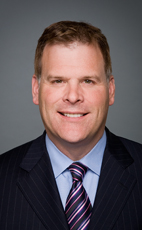Mr. Speaker, the Office for the Coordination of Parliamentary Returns at the Privy Council Office, PCO, coordinates the government-wide process for producing and tabling responses to parliamentary written questions seeking factual information from ministers of the Crown relating to public affairs.
PCO seeks to assist the government in providing timely, complete and accurate responses to questions from parliamentarians and has prepared a “Guide to Producing Parliamentary Returns” to assist departments, agencies and other government organizations to prepare timely, complete and accurate responses.
Officials in PCO examine the Order Paper and Notice Paper of the House of Commons and the Senate on a daily basis for new questions. The text of each question is analyzed and, on occasion, clarification of a question may be sought from the parliamentarian who filed the question. PCO then determines, in consultation with departmental parliamentary return officers, which departments and other organizations in a minister’s portfolio will be assigned to respond to the question. In the case of complex questions assigned to many departments and other government organizations, PCO will often produce and distribute written instructions. These will state which organizations should answer parts of a question, provide advice on interpretation of the question, refer to relevant government policies, and, if needed, provide a template so that information is presented in a consistent manner. These instructions are tabled in Parliament with Ministers’ answers to the questions.
PCO has also produced, as requested by the Auditor General, a “Glossary of Terms for Parliamentary Returns” to help parliamentarians frame written questions in a manner that will assist them in getting the type of information they wish, and to help government institutions ensure there is a consistency of response. Many of the glossary items relate to financial and accounting terms used by federal government institutions.
PCO is responsible for ensuring compliance with the guidelines, for ensuring that there is a consistency of approach with respect to multi-departmental/agency responses, for quality control as far as practicable, and for ensuring the responses are formatted for tabling in Parliament and using appropriate parliamentary language. For responses to questions tabled in 2010, PCO in carrying out these responsibilities made or suggested that 275 discrete changes be made to proposed responses submitted to the PCO Office for the Coordination of Parliamentary Returns. Approximately two-thirds of these interventions were to address formatting issues, typographical errors, translation issues, or issues of parliamentary language. An additional 25% of the interventions were to provide greater precision, greater clarity, or additional information in the responses. In four instances, duplicate information was removed. In five other instances, PCO interventions were to suggest the privacy of individuals or companies be protected in accordance with government policy, i.e., that the principles of the Access to Information Act and the Privacy Act be applied. For responses tabled in 2009, PCO made or suggested 41 changes to provide greater precision, greater clarity, or additional information in the responses. It was not possible in the time available to research the number of changes to address formatting and other similar types of matters in 2009.

